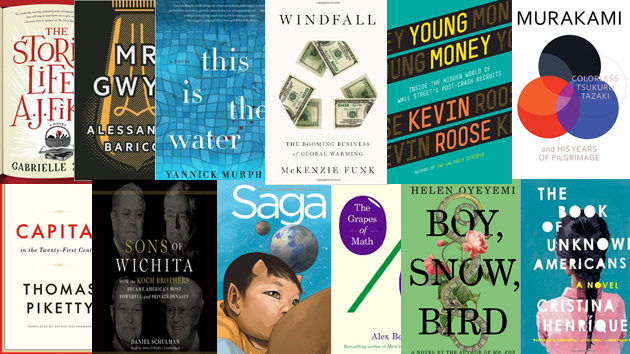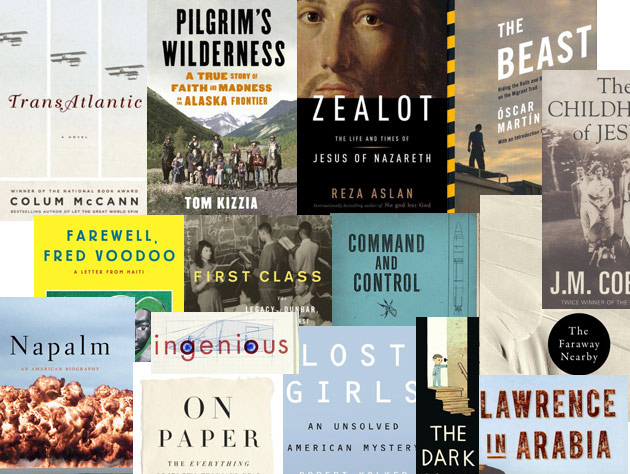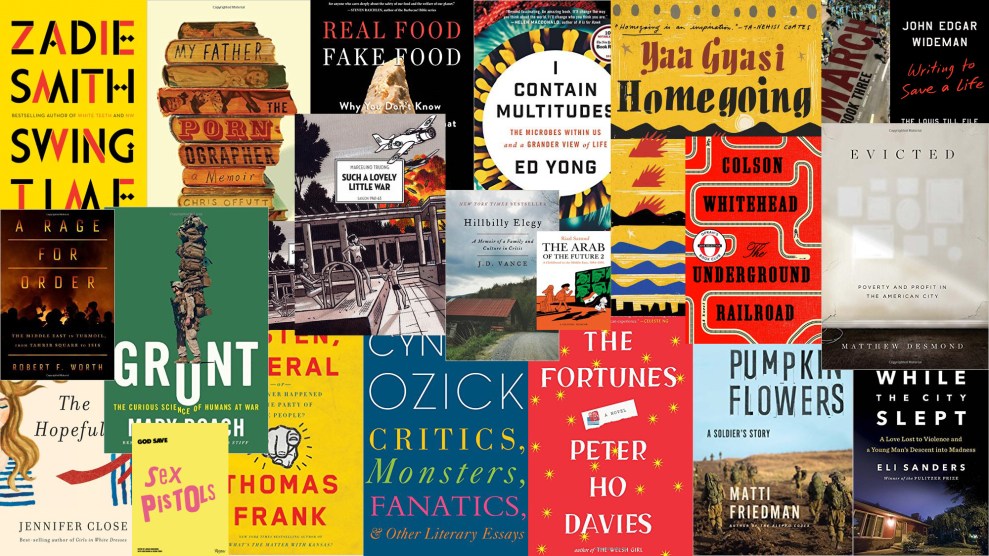
Every year, Mother Jones receives hundreds of worthy books, but there are always a handful that truly stand out, the ones we end up foisting on friends and family. Well, friends and family, here you go, in no particular order. Also, be sure and check out the Best Cookbooks post by food and ag writer Tom Philpott and the year’s best music from critic Jon Young. Also stay tuned for 2016 photo book picks from photo editor Mark Murrmann.
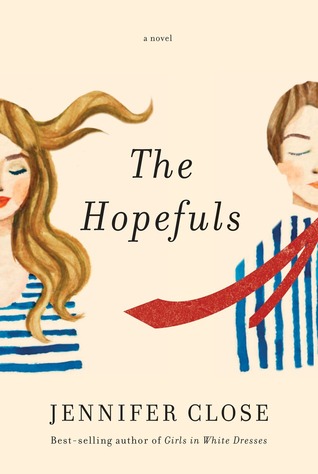
The Hopefuls, by Jennifer Close. Beth, the twentysomething protagonist of Jennifer Close’s wryly observed new novel, is an aspiring journalist loving life in New York City. But when her husband, Matt, gets a job in the Obama administration, Beth reluctantly agrees to follow him to DC. Thanks to Close’s eye for detail, The Hopefuls is like a still life of Washington in 2008. She masterfully captures both the contagious enthusiasm and wonky snobbery of DC’s rising political stars and their hangers-on. One character is forever telling anecdotes about senior Obama adviser David Axelrod, pretentiously referring to him as “Ax.” Another refers to Obama as “the senator”—a subtle humble brag that he’s worked for the president since way back when. Beth is miserable in this dreary social circle—until she and her husband click with a charismatic couple from Texas. And before she knows it, Beth herself is swept into this world of political strivers. Ultimately, The Hopefuls is as much about friendship as it is about politics—and about what happens when the two collide. —Kiera Butler, senior editor
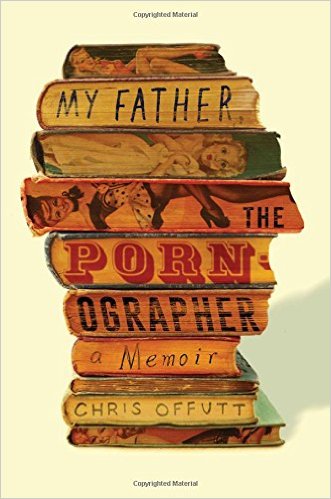
My Father, the Pornographer, by Chris Offutt. This memoir is not a salacious romp, as the cover might suggest, but a slow-burning examination of Chris Offutt’s strained relationship with his late dad, a prolific author of smut and sci-fi. Offutt focuses less on the giant pile of kinky material he inherited than how it affected his childhood, his family, and his sense of self. His final plunge into his father’s most secret, and shameful, obsessions is worth the wait. —Dave Gilson, senior editor
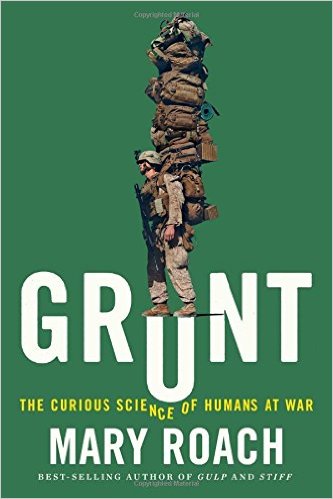
Grunt: The Curious Science of Humans at War, by Mary Roach. This latest book from the perpetually curious Mary Roach looks at the weird yet deadly serious science of keeping soldiers alive. In a globe-trotting tour of labs, training grounds, and a nuclear sub, Roach explores how fighting men and women sweat, sleep, and poop. “No one wins a medal” for this obscure, often gross, survival research, Roach writes. “And maybe someone should.” Like her previous books Gulp and Stiff, Grunt oozes bodily fluids, flippant footnotes, and weapons-grade wordplay. —D.G.
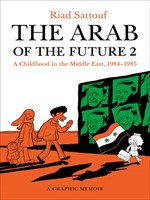
The Arab of the Future 2: A Childhood in the Middle East, 1984-1985, by Riad Sattouf & Such a Lovely Little War: Saigon 1961-63, by Marcelino Truong. Two of the most affecting memoirs of the year are graphic novels by French cartoonists who grew up astride two cultures. The Arab of the Future 2 picks up where its predecessor left off: Riad Sattouf, the adorable six-year-old son of a Syrian father and a French mother, is adjusting to his new life in his father’s village outside Homs in the mid-1980s. Sattouf’s bubbly illustrations belie the bleakness of his surroundings, and the violence and misogyny he witnesses.
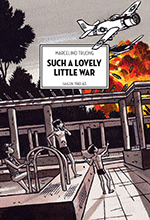
Marcelino Truong’s beautifully illustrated tale follows him and his two siblings in their move to Saigon as the Vietnam War heats up. While the kids are enthralled by the war and oblivious to its horrors, their French-born mother breaks down as she sees just how quickly things are falling apart. The two authors’ artistic and narrative sensibilities differ, but their work is united by common themes: surreal childhoods amid geopolitical conflict (Sattouf and his playmates battle the Israeli Army; Truong and his cousins pretend to fight the Viet Cong) and idealistic fathers (Sattouf’s dad is a Qaddafi- and Saddam-admiring pan-Arabist, while Truong’s is an official in the US-backed South Vietnamese government) who are blind to the strife afflicting their countries—and families. Read together or separately, these comics pack a surprising punch. —D.G.
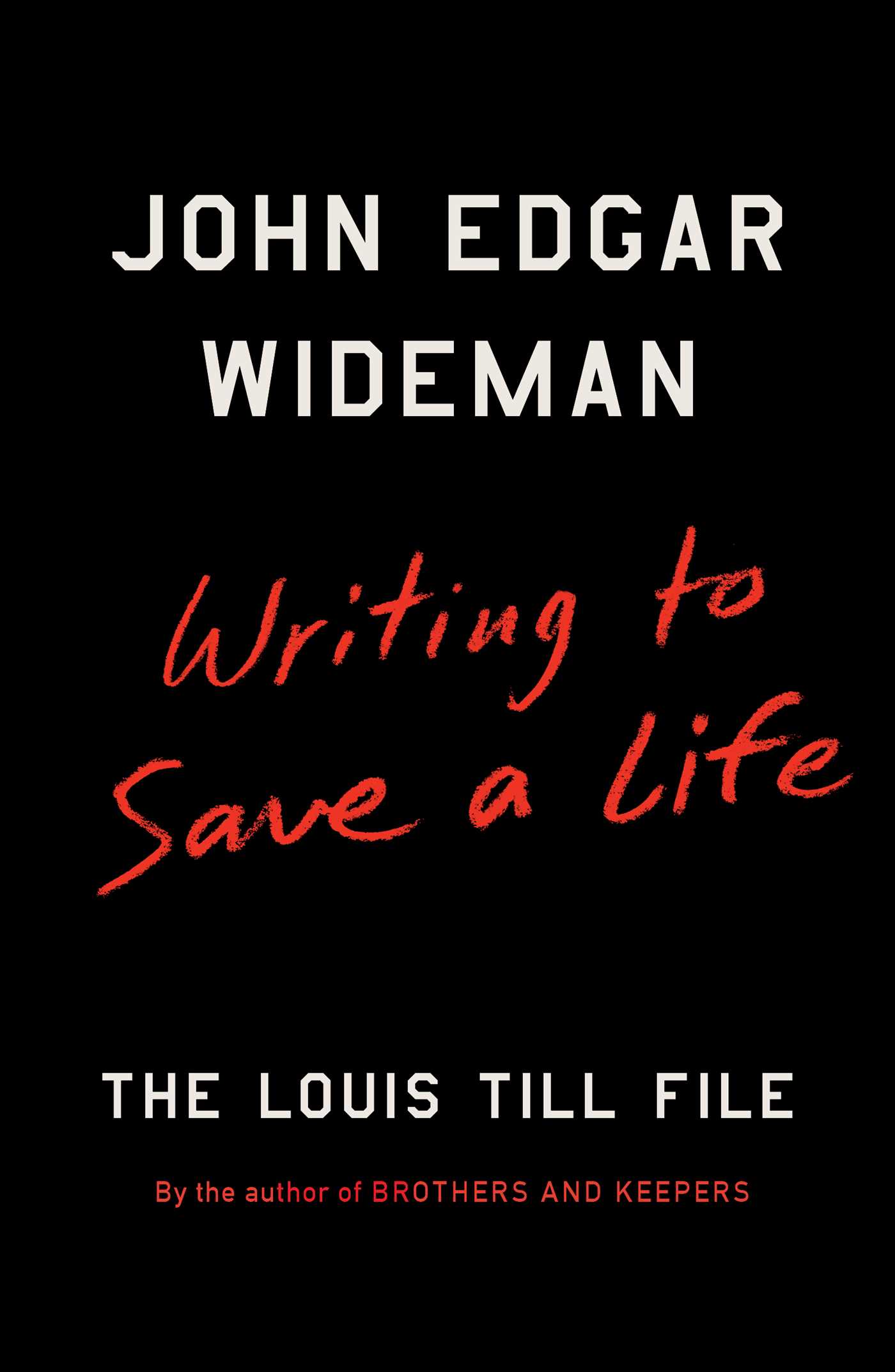
Writing to Save a Life: The Louis Till File, by John Edgar Wideman. In his first book in more than a decade, the acclaimed African American author and Brown University professor John Edgar Wideman explores the saga of Emmett Till’s father, who was court-martialed and hanged by the United States military well before the notorious lynching of his son by white racists in Mississippi. Via a Freedom of Information Act request, Wideman obtains records from Louis Till’s military trial and interrogates the file from every angle—filling in the gaps with his own vivid imagination and recollections. Part history, part memoir, part mystery, part fiction, this insightful book reveals as much about the author as it does about his subject. As Wideman put it to me in a recent interview, “To write a story about Louis Till puts me on trial.” —Michael Mechanic, senior editor

The Underground Railroad, by Colson Whitehead. You’ve probably heard plenty about 2016’s National Book Award winner for fiction, but I’ll pile on anyway. Whitehead’s riveting slavery saga reimagines the underground railroad as a literal thing, but he doesn’t dwell too heavily on that plot device. The story follows a pair of escapees from a Georgia plantation as they move north along the railroad, pursued by a determined slave catcher. Among other things, they stumble across a bizarre eugenics experiment in South Carolina and a vile campaign of ethnic cleansing in North Carolina. Whitehead’s character-driven tale brings into visceral relief the horrors, the cruelty, the stark inhumanity of an economy based on captive black labor. And he reminds us, too, of the grim fate that awaited Southern whites brave enough to oppose the system. —M.M.
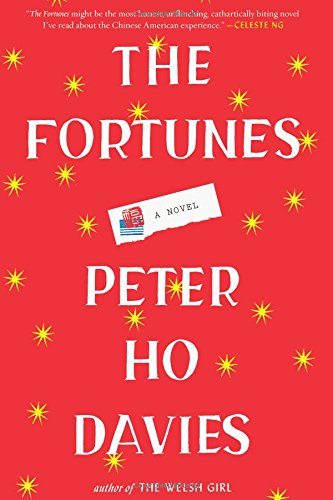
The Fortunes, by Peter Ho Davies. Given the extraordinary success of Chinese Americans today, it’s easy to forget how tough white society made things for their forebears who flocked here during the Gold Rush or who were imported as cheap labor for railroad companies—only to later be scapegoated and officially excluded by an act of Congress that would remain in force until 1943 (just in time for the interning of Japanese Americans). Davies’ outstanding new novel reminds us how things were (and still are, if the 2016 election is any indication). The experiences of Davies’ characters—a poor laundry boy hired on as a railroad magnate’s valet, an ambitious Chinese American starlet—highlight the tightrope walk of maintaining one’s culture while striving for acceptance in a resentful society. The Fortunes feels particularly timely now that we’ve handed the White House keys to a man who threatens to register and exclude Muslim immigrants, and to deport Americans (for really, what else can we honestly call them?) brought here without papers as toddlers. —M.M.

While the City Slept: A Love Lost to Violence and a Young Man’s Descent Into Madness, by Eli Sanders. One night in 2009, a disturbed young man named Isaiah Kalebu entered a Seattle home through an open window and raped and stabbed two women, killing one. He was sentenced to life in prison, but local journalist Eli Sanders, who won a Pulitzer Prize for his coverage of the case, kept digging. While the City Slept, his compassionate examination of the lives that collided that night, relates how a bright but abused boy grew into a violent criminal and, as one psychiatrist put it, “became his illness.” The book plays double duty as tribute to those whose lives were upended and a meticulous indictment of the way we fail fellow citizens with serious mental disorders. —Madison Pauly, assistant editor
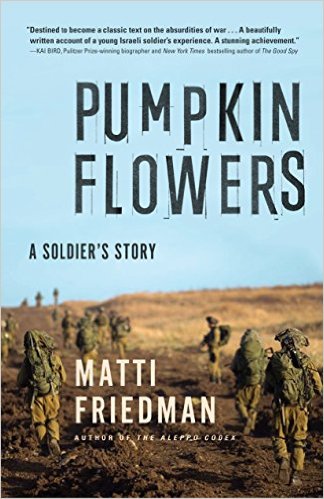
Pumpkinflowers, by Matti Friedman. This is a 21st-century war story, with all of the IEDs, propaganda videos, jihadi groups we’re accustomed to—but one told in the restrained, introspective style of the World War I writers Friedman turned to for inspiration. It’s partly an engrossing personal story, partly a history of a forgotten chapter in Middle East conflict, and one of the best-written books I’ve read in years. —Max J. Rosenthal, reporter
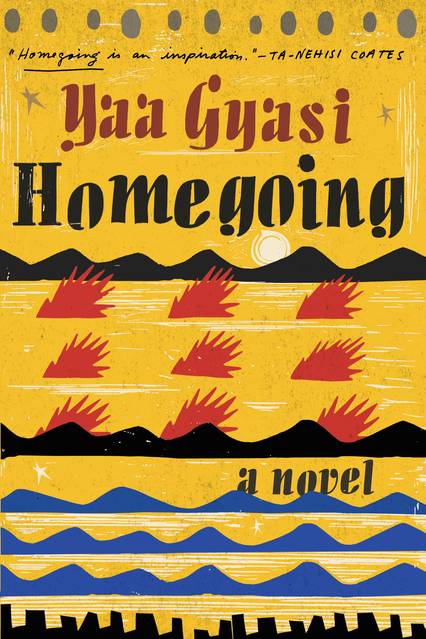
Homegoing, by Yaa Gyasi. This ambitious debut novel sparked a bidding war and landed Gyasi a seven-figure contract just one year after she graduated from the Iowa Writer’s Workshop. Following seven generations across two continents, Gyasi manages to fit the many stages of slavery’s plunder into a relatively slim volume, to dazzling and often devastating effect. Though some of the storylines unravel a bit toward the novel’s end, the emphasis on global slavery’s ramifications in West Africa, told with rich and lively characters and language that hums, makes this well worth the commitment. —Maddie Oatman, story editor
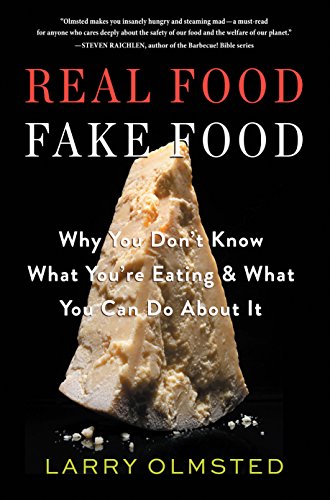
Real Food, Fake Food: Why You Don’t Know What You’re Eating and What You Can Do About It, by Larry Olmsted. We’ve all been told to steer clear of artificial ingredients, but how much do you know about fake—meaning fraudulent—food? Turns out, it’s everywhere, including in your kitchen right now. Olive oil, parmesan cheese, fish fillets, red wine; it would seem the more scrumptious the victual, the more likely it is to be a sham. Olmsted gives us the lay of this seedy landscape with momentum and aplomb. He demystifies the process by which fake ingredients end up in your shopping cart, explains why some of these deceitful foods could be a real threat to your health, and sheds a light on the government policies and shortsighted commercialism that landed them there. —M.O.
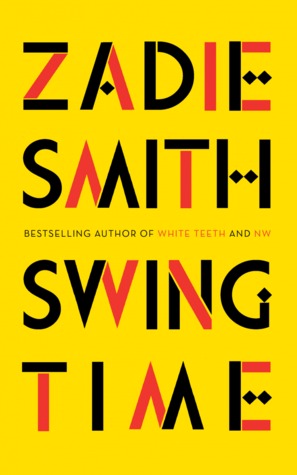
Swing Time, by Zadie Smith. Award-winning author Zadie Smith’s fifth novel interweaves two narratives. One involves the unnamed narrator’s childhood friendship, wrought by a shared passion for dance. The other one revolves around the narrator’s adult travels to Africa in the employ of a pop star as she grapples with her own biracial identity. Penned in Smith’s inimitable, winding style, Swing Time looks unflinchingly at race, gender, parenting, love, and friendship. In places, I found the book an unnerving reminder of my own childhood, of parents who seemed invincible and maddeningly certain about the course of their offspring’s future. —Becca Andrews, assistant editor
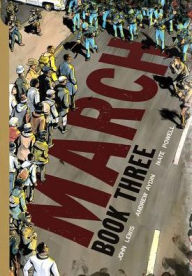
March: Book Three, by Rep. John Lewis and Andrew Aydin; illustrated by Nate Powell. Police brutality, segregation, voting rights: Many of the big issues of the 1960s are alive and well today. The March graphic-history trilogy tells the story of the civil rights movement through the eyes of Rep. John Lewis, onetime chairman of the Student Nonviolent Coordinating Committee—a group at the center of the struggle. In poignant detail, the March books, totally 600 pages, put us at the heart of the battles over desegregation and black suffrage. We meet the movement’s leaders and witness the ugly local clashes leading up to the March on Washington. In the third installment, which earned a 2016 National Book Award, the beatings and defiance of “Bloody Sunday” stand in sharp contrast to Lewis’ pride on President Barack Obama’s inauguration day. The book, and the trilogy, offer lessons for modern strivers on how far we’ve come—while serving as a reminder of how far we have yet to go. —Edwin Rios, reporter
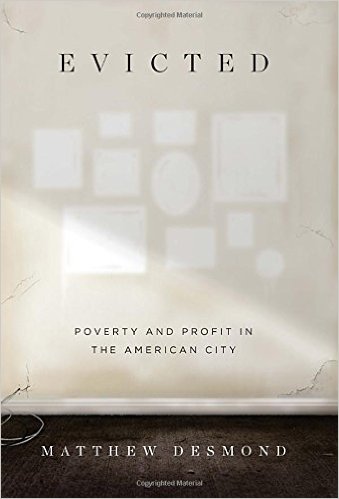
Evicted: Poverty and Profit in the American City, by Matthew Desmond. In a tome filled with heartbreak, Desmond, a sociologist who teaches at Harvard, embeds with eight families who are struggling to keep a roof over their heads in the segregated city of Milwaukee. Rich in history and bolstered by engrossing research, Evicted vividly captures with empathy the lives of those caught up in deep poverty as they reel from the consequences of losing their homes. In doing so, it elevates the importance of affordable housing in today’s society. “Housing is deeply implicated in causing poverty in America today,” Desmond told me in March, “and we have to do something.” —E.R.
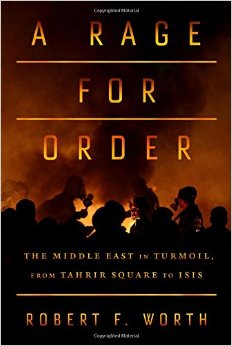
A Rage for Order: The Middle East in turmoil, from Tahrir Square to ISIS, by Robert F. Worth. This is not your typical Middle East manuscript—no bird’s eye view of battlefield advancements or policy analysis on the region in collapse. Rather, Robert F. Worth, the longtime correspondent for the New York Times, managed to be on the ground seemingly everywhere that mattered during the zenith of the Arab Spring, and takes us a journey inside the lives of those whose hopes rode on the Arab Spring’s promise and whose lives changed—or ended—forever once the popular uprisings collapsed into insurgencies and civil war. It’s a beautifully written, moving account that brings humanity and heart to a region typically only considered in terms of conflict and chaos. —Bryan Schatz, reporter

God Save Sex Pistols, by Johan Kugelberg, with Jon Savage and Glenn Terry. Curator, author, and all-around underground know-it-all Johan Kugelberg released the end-all Sex Pistols ephemera collection earlier this year, and just in time; soon after, Joe Corre, son of punk impressarios Malcolm McClaren and Dame Vivien Westwood, celebrated the 40th anniversary of the Sex Pistol’s first single by burning more than $6 million worth of rare, original Sex Pistols and UK punk memorabilia. Though the original artifacts were lost to Corre’s piqued sense of anti-nostalgia, God Save Sex Pistols lovingly showcases photos, letters, flyers, records, posters, shirts—everything related to the band that once terrified parents and politicians. The book also serves as a more focused compendium to Kugelberg & Savages’ excellent 2012 book, Punk: An Aesthethic. —Mark Murrmann, photo editor
I Contain Multitudes: The Microbes Within Us and a Grander View of Life, by Ed Yong. Few writers know how to explain science clearly, and even fewer science writers compose genuinely gorgeous prose. Ed Yong is that unicorn. I Contain Multitudes: The Microbes Within Us is the most elegant guide I’ve seen to our still-primitive understanding of the microbiome—the gazillions of tiny critters living within us. Like Nietzsche peering into a microscope, Yong urges us to think beyond “good” and “bad” microbes: “These terms belong in children’s stories. They are ill-suited for describing the messy, fractious, contextual relationships of the natural world.” Context is everything. “The same microbes could be good in the gut, but dangerous in the blood,” Yong writes. One of the many functions of mother’s milk, one scientist informs him, may be to “provide babies with a starter’s pack of symbiotic viruses”—and that’s a good thing. “Every one of us is a zoo in our own right—a colony enclosed within a single body,” he writes. “A multi-species collection. An entire world.” —Tom Philpott, food and ag correspondent

Listen, Liberal: Or, What Ever Happened to the Party of the People? by Thomas Frank. His forward-looking autopsy may seem like a contradiction in terms, but Thomas Frank had the dirge of the Democratic Party cued up before primary season. Still, the shock of November 8 catapulted the virtuosic Listen, Liberal from insightful to downright prophetic. Frank meticulously charts the Democrats’ suicidal slide from a party of the factory floor to one of late-summer galas on Martha’s Vineyard. He hits on all the major missteps—the decline of middle-class wages, the bank bailouts, the trade deals, the technocracy (oh, the technocracy!)—all of which were later parceled out by the flabbergasted into grasping post-election think pieces. Frank’s book is lacerating and urgent, but also titillating, witty, and downright fun to read. It will no doubt give some establishment Dems the strong urge to throw the book into the ocean—indeed, their proximity to the coast and ability to conceivably do just that is part of the problem. This, for my money, is the best nonfiction of 2016. —Alex Sammon, editorial fellow
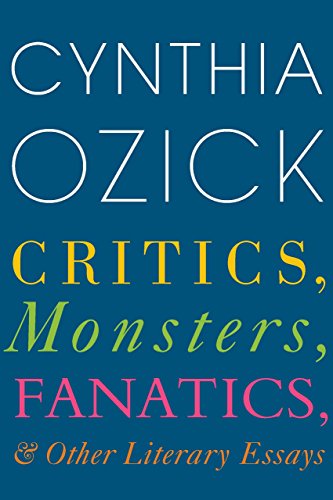
Critics, Monsters, Fanatics, and Other Literary Essays, by Cynthia Ozick. Narratives of decline seem to be particularly in, but no one can render this notion quite as beautifully as Ozick. At 88, she’s been around the literary block, and she can’t help but lament the state of the American traditions of reading and writing. “What’s impossible not to notice,” as she put it to me earlier this year, “is the diminution of American prose.” To read Ozick is enriching for her startling vocabulary alone, though her intellectual force is also something to behold. This essay collection stakes out the critical cultural importance of literary criticism, and does so with the linguistic expertise of a poet—peaking with a vivid disemboweling of the term “Kafkaesque,” for all its faux-literary worth. One thing, for Ozick, is certain: The road to cultural aridity is paved with 3.5-star Amazon reviews. —A.S.
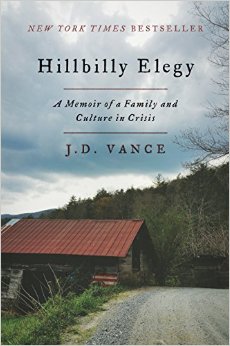
Hillbilly Elegy: A Memoir of a Family and Culture in Crisis, by J.D. Vance. If you want to understand how Donald Trump took over the GOP, and how he won so many Rust Belt counties that voted for Barack Obama, this is a good place to start. Vance uses the story of his childhood in a dying steel town to highlight what he sees as cultural shortcomings and political delusions among the region’s white working class. “We talk about the value of hard work,” he writes, “but tell ourselves that the reason we’re not working is some perceived unfairness: Obama shut down the coal mines, or all the jobs went to the Chinese.” There’s plenty to disagree with in Vance’s analysis—his insistence on blaming “welfare queens” for their financial problems, for example. Still, for all of us asking, “What just happened to my country?” Hillbilly Elegy provides some invaluable clues. —Jeremy Schulman, senior project manager, Climate Desk
